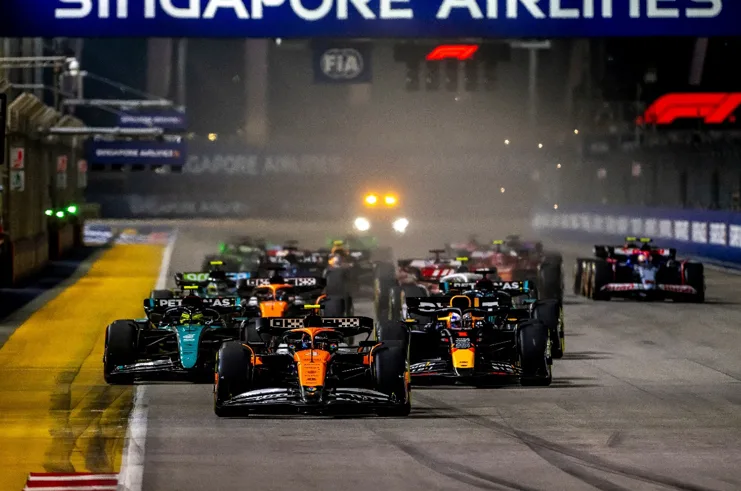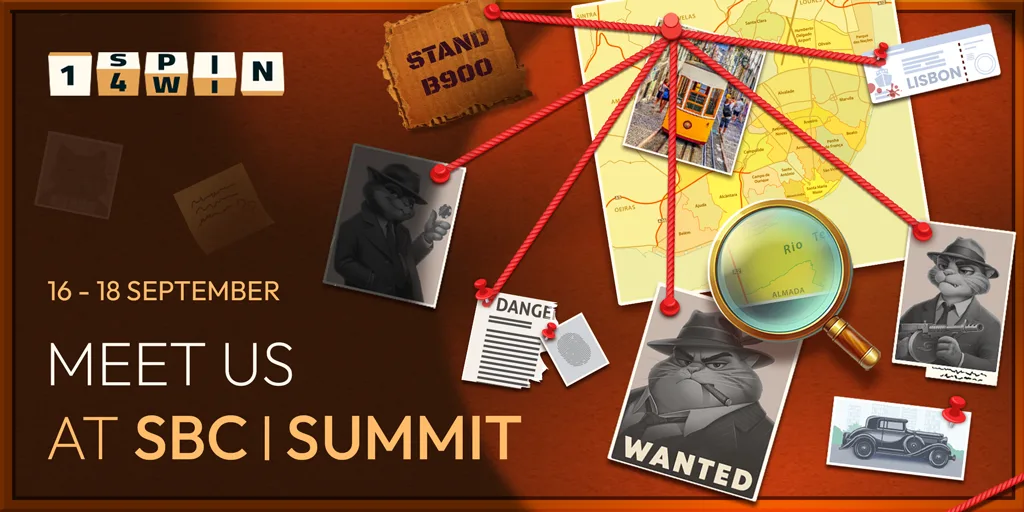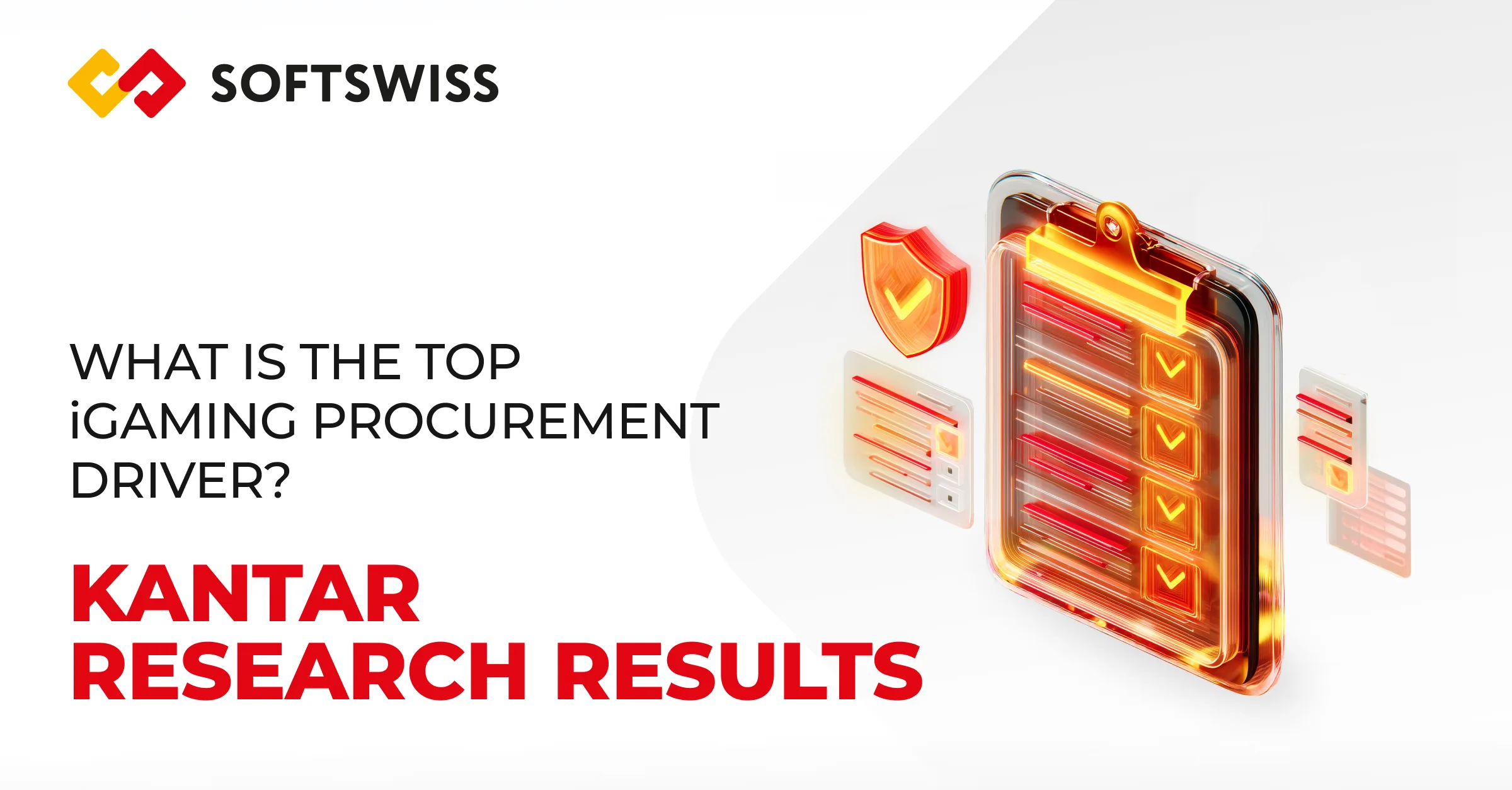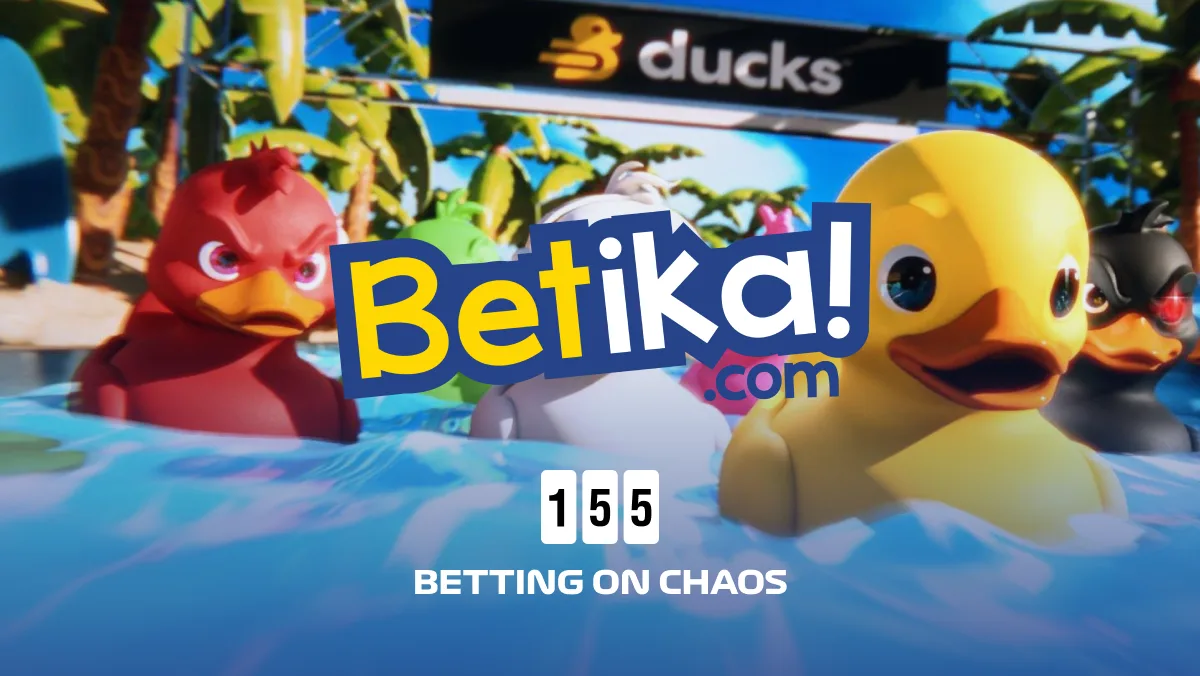Maxim is the author of a fast-growing channel on SEO in gambling. He has been doing SEO for five years, three of which – in the gambling niche. Maxim works in more than five geos and has over 20 top-tier drop sites. He also develops a gambling portal. In this interview, we talked about what budget is needed to launch a website, how to choose drops and links for outreach, what topics are the best for easy/profitable promotion, and many other aspects of SEO in gambling.
Your main field of activity is SEO promotion. Why did you choose this direction for affiliate marketing? What verticals do you work with?
I want to clear out this right away. SEO is different from affiliate marketing because the traffic is not purchased there, it is free. This is a small but important nuance.
Why did I not choose affiliate marketing? I like it from the outside. Besides, in affiliate marketing, you can make a lot of money in a short time. The issue, however, is in my character: I am not comfortable doing it. For me, it’s like a kind of turbo-trading, and I understand that I have to wake up all the time to the news about my accounts getting banned, and go to sleep wondering if some bundle will work. This is not suitable for me psycho-emotionally.
SEO is rather like a long-term investment. You do a lot, keep doing it, buy some shares or cryptocurrencies, and so on, and eventually, in six months to a year, one in ten or five (if it is white SEO) pays out.
As for verticals, I work mainly with crypto and iGaming. Trading is personally very interesting to me, I used to be very much into it, I like to read news about trading, and I am curious about how the mechanisms work. As for gambling, I will tell you honestly, as I tell everyone, it is just more money.
There have been several Google updates recently. Have they affected your sites? How badly? What should one do to prevent such “updates” from destroying all their work?
Your question shows how 95% of SEO specialists think. But the point here is not how much an update will affect you, but what precautions you can take to be safe so it does affect you very much.
What I mean by that. Let’s take your GBC Time sites as an example. I see you have one site and several language versions. So, the first way to protect it from updates is to make three different domains and link them together. That is, in the event of a bad Google update, which everyone feels will come sooner or later, maybe one domain out of three will fall, or two out of three, but it is unlikely that all three of them will crash.
I usually experience 50 to 80-90% portfolio growth during Google updates. But, I want to emphasize this, it is never the case for all sites. This is a myth, and no one experiences this: neither the top companies nor the top SEO specialists. There is no such thing as the growth of all your sites – no matter how well you care about them (maybe, even more than about your children) – during an update, this will not happen. So, the only way to safeguard yourself from updates is to have a lot of projects. And preferably not only in SEO.
Of the trivial ways that I can advise, the first is, let’s say you have some niche site triggered, it works, and it grows, but we understand that this may stop after the next update. And it does not matter whether you are doing everything by the book or not. If you are doing everything right, it is less likely that you will have a decline, but this does not eliminate the possibility. So, do not be lazy, create new sites, because when the updates go bad, you will thank yourself for this. And while your main site may drop and give you less traffic, other projects will save you.
Another important point, if you create sites in different languages, do not do it on one domain. I understand that you may want to do this: you already have a domain, it has trust, and it is easier. But these are completely different scenarios: when you have one site in 10 languages and all 10 of them fall, or when you have 10 languages and three or four sites out of 10 fall down.
So, I believe that the only sensible way to protect yourself from upgrades is to diversify. If you don’t diversify, the update comes and your income has fallen threefold, and you and your girlfriend spend your vacation in the Carpathian Mountains, in the best case, instead of Dubai. What I advise you to do in this case, it sometimes helps. Go look at what the top performers are doing in terms of links, content, and visuals and try to replicate it. In most cases, this helps, but not always. Well, you can light a candle for it, maybe it will help.
I always say that a website is an investment. It is like a flower that you plant. At first, it gives nothing, but you water it, you are engaged in it, and it pays out. You can never invest in one flower, not even in one greenhouse, you have to have many different greenhouses to sleep well. And most people do not have many different greenhouses because their own are blooming and they are too lazy to start a new one. In fact, this is the problem with most SEOs – they prefer to go out to drink beer than to create new sites.
SEO involves a long-term strategy and requires patience. How quickly can sites start generating income? Is it possible to combine long-term development and fast earnings? What do you need to do and how much money (minimum) to invest in the project?
With the new site, the main question is whether you create it on a drop, that is, a domain with a history, which has trust in Google (It is how we try to fool the search engine and convince it that the domain that we already have has slightly changed the subject); or you want to create our own brand domain from scratch. In the first case, I will say, from personal experience, you can start earning as early as two weeks if everything goes on a very good script. In the second case, if you have to make a new domain from scratch, if the niche is competitive, like crypto, iGaming, nutrition, or other affiliate niches, it takes six to eight months at least. Maybe in some rare exceptions with low competition in a given geography – three months but this is if you are an ultimate pro in new sites.
In order for a site to start generating revenue quickly, you have to do everything for the Google robot, and with this approach, it usually does not matter what happens next. In the best case, you make money quickly and then invest it in something long-term. But, unfortunately, people are poor learners, eager to make a quick buck. I meet many SEO specialists who are 40+ years old and have been in this sphere for 15 years: to earn – to spend, to earn – to spend.
So, the difference in approaches is quite simple. A website for the long term is a contribution to everything: UX, meaning a beautiful design, content, and links should not be for Google but organic. You can either buy expensive links from thematic sites or adapt every article you buy from some news portals to make it look natural. So, I would say, you should be paying very close attention to every tiny detail. And, of course, it all takes a lot more personal effort to train a team and do it all yourself in the beginning, it takes time and money.
Here is a little bit off-topic: ROI is always higher on black projects. On white projects, in white SEO, I have never had a project that brought ×10, ×20, or ×30 in a year. There is no such thing. And in the black niche, it is quite realistic to make ×10, × 15, or ×20 in one year. The question is what you want: to quickly raise money or to sleep well. If you want to raise money fast, you just cheat Google, do everything fast, and do not pay attention to details, and sooner or later everything falls down like dominoes.
If we talk about the minimum amount to invest in the project, you can make a buck even with $500. But I advise you to use my scheme, which works from $5 thousand at least. However, I know that there are guys who are doing it for $500, and it all works. The question is, again, how much of this is risky. I will give you a specific example. You have to decide on the quality of drop domains you use so that your site does not collapse after a month; what you order – copywriting or text generation. That is, you can take cheap domains, spammed, with great risk, opt for text generation, and it can work quite well too. And the cost will be $500-1 000. I do not do that, because it is too volatile for me.
From this point of view, it seems like the entry threshold is pretty low, but here is the catch: if you are a newbie, you cannot put in $500 and make $5k. It will not work that way. The lower the entry threshold, the higher your skills have to be in order for them to work. It is like turbo trading: every time we lower the entry threshold, we are speeding up the trading. In general, black SEO is not easier, it requires a lot more understanding of how things work and a lot more experience. You have to understand right away whether it’s going to work or not.
Ideally, you have to choose something between turbo and long-term, which is why I say you should start from $5k. You have to take a good drop domain, a quality one that you can put confidence in, and that has normal texts. This way it will work. It will not last for 10 years, but it should last for a few years. Within three to four months, a maximum of six months it will all pay off, then you will make money and use that money to develop a long-term strategy. This is the formula I use myself, and it works best.
In your Telegram channel, you told a story of a girl who has been working for 8 years with several sites, didn’t put in much effort, and yet has attracted several high rollers during this time and is making $20-30K per month. Can you break down this case in more detail? What is the secret to your friend’s success, besides patience? Can anyone who is patient replicate this success?
What can I say about this? Everyone here, especially in the casino industry, loves to make money here and now, almost everyone works on the CPA or a hybrid model with a small percentage. And the biggest mistake webmasters make is that they abandon sites that, for example, bring very little or nothing at all.
My acquaintance had a distinctive feature in that, firstly, eight years ago, everything was a little simpler. And secondly, she made the sites, you might say, on the hoof, and just invested in them little by little. And we multiply all this by one, two, three, four, five, six, seven, eight times. So, the whole thing is very much in the long run.
I can tell you from experience that I had one site on the tier-3 geo in Asia, and several high rollers brought me a total of about $70 000. So, getting a high roller is quite realistic. The main thing is not to give up the site and understand that it’s not going to be quick. In that case, she had her first high roller only after being in business for four years. That is, for four years, she invested in the sites almost more than she got from them. Few webmasters are willing to spend more than they earn over four years.
For example, a person gets $500, and they need to throw in $700. People often want everything at once, so no one will do so. And she didn’t sweat it and she did. And at some point, it started really working out. Of course, the whole story with 10, maybe 20 high rollers, that is with a small number of quality players, but it’s about the fact that you don’t always have to have some awesome skills or be a top player. Sometimes you just have to do and do, and keep doing. And don’t give up no matter how much time has passed. And time is on our side – and we reach success.
What is success anyway? Success is a repetitive action, however small, over a long, long time. And this is a good illustration. My acquaintance did not try to achieve something quickly, she did not try to become a top SEO specialist. She realized that, just, okay, I don’t have a huge budget, I’m just going to take my time. And it worked out.
If we are talking about SEO in the gambling niche, there’s an opinion that everything is already hammered out there, the niche is expensive and very competitive, so there’s nothing to do there without a dump truck of money. Do you agree with this? How much do you need to invest in iGaming as a minimum?
In my course, we did the parsing of one geo in Latam. In just five minutes I found leads there in five minutes, and I’m sure others will find them too, using keywords such as “casino VIP … something there” with a volume of about 200, where the first two sites of the output had domain-rating zero. In fact, in casinos, like everywhere else, there are those who shaft and drown, and there is a huge mass of people, many of them on the payroll, who just like to talk about this niche and talk about how complicated things are there. This is my impression, I make no claim to the truth.
There are tiers and geos where it’s really hard, but there are none where you can’t break into the top and collect money. This is a myth. The main thing is to think outside the box, look at the competition, and search, search, and search. As for the budget, the approach is basically the same as I told above, but in the gambling niche, I advise starting from $5k. Because there are cases where my friend got $30k, but this man knew exactly what he was doing and he is a “master Yoda” in all these matters. Newbies need to have enough money to do quality work.
How do you select sites for outreach? What are the main requirements for placement? How much are you willing to pay for a link to a trusted site?
Requirements are pretty standard: DR (domain rating) of 20, the trust flow of the site 10 so that there was traffic and it did not feel that the site was just selling links right and left. It has to be an organic site with a real theme. To me, a good link is a link that has a place in nature and that ranks. What does that mean? It means that roughly speaking, we take the links of a competitor and see which of his links that he has already bought, are ranking (being ranked). After all, we have data competitors, and many somehow do not use them. What do I mean by “ranked”? It means that Google trusts them. And that this guest post that a competitor bought, Google trusts it, so it ranks it. And we’re looking at what I call “semantic slippage.”
For example, we have a site about men’s clothing, and our webmasters like to put there if the owner allows, an article called “Best Casino Online” or “Best Slots Online.” It doesn’t get any better than that, as they say. The problem is that such a post, yes, it’s optimized, and it sends a signal in terms of semantics, but it’s absolutely not natural. You have to make it “What to wear to go to the casino.” That’s even the keyword, by the way. And here is where the main plus is. The fact that with such a keyword, the article may well be ranked and even collect some small traffic. What does it mean? That Google trusts this article. And this means that the risk that Google will devalue and not read such a link is extremely small.
I think it’s impossible to fully understand how Google ranks links. There are different indicators, but in general, only Google knows that. The best way to ensure that Google does not stop taking your links seriously is to make your links rank, too. How we do it. Once again, look at what your competitors are ranking, and repeat the same semantic slippage, given the overlap between the old site and the casino theme. For example, you have a site about history – talk about the history of casinos. A site about movies – the best casino-related movies, like “James Bond: Casino Royale.”
What pages do you mainly focus on when promoting your site?
If we are talking about outreach, I lead to the main page of about 40%, and the remaining 60% I lead to pages that bring money. The division is purely by experience because the main also needs to pump and the home pumps other pages. And I pump mostly outreach. That is, for me, some of the most expensive, most valuable links – this outreach, and they need to pump only pages that bring money.
If by theme, I focus mainly on payments, bonuses, and generic pages in the style of “best online casinos.
Which clusters on average are the best in terms of ease/profitability ratio? Can casino brand pages be singled out among these?
If we talk about clusters as themes, my understanding is, of course, bonuses. And here we go back to unconventional thinking. People here like to stick to no-deposit bonuses, where there are no money or welcome bonuses. But there are a lot of different bonuses: birthday bonuses, event bonuses, bonuses exclusively for bitcoin casinos, Microgaming bonuses, roulette bonuses, and many more. You just have to take it and do it, do not be afraid of the fact that at the first glance there is not enough volume. It’s not the volume that makes you happy.
As for the pages of casino brands, I would say that in terms of ease they can be distinguished, but in terms of profitability – no. There is a payoff, but it comes with a lot of nuances. For example, many brands may have a bad deal or something that is inconvenient for you. Your top brands are taking traffic at €400 CPA, a hybrid of €200 plus 50% and another brand that has traffic says, “Look, we’re so cool, we have €50 CPA and a hybrid of €20 and 20%.” And you have two options. Either agree to those terms or, as I advise, redirect your traffic to another brand. But in this case, of course, you will lose a lot of players.
The other situation is that even if the brand is fine and you have a deal, very often the person who is looking for the brand may already be registered there. And if you’re not top-1 on the brand, chances are he’s already registered on the first site in the search engine and is just looking for information on whether or not the brand is good. So it’s not the most profitable traffic.
How do you search for domains in auctions? What are you guided by when choosing? At which auctions are you looking and what filters do you use?
As for the filters, in general, it is the same as for the outreach – minimum DR of 20+, trust flow of 10+. I also make sure that the domain has a clean history. Of course, it is much cheaper to take a domain that has been spammed or that has something else wrong with it. And I know from experience that such domains bring good results sometimes. But you have to be very clear about what you are doing. I would not advise anyone to do that from the start.
Why do we even buy a drop? Because we do not want to build up Google’s trust and we want money here and now. What we need for Google to trust us is:
- A good story;
- Trusted links.
For me, trusted links are rare links. So, the first thing I look for are links from government and scientific sites. Many of our webmasters, especially some PBN-ers, like to add BBC links to their domains. But how many times does one BBC article link to outbound sites? Usually three or four outbound links. Where is the rarity here? I do not get it. These are good links, but I do not consider them anything super valuable. So, my advice is to look at different organizations and government sites with organic links – not somewhere in their profile – those are hard to come by. Google appreciates that – rarity.
Can you name a few tools that an SEO specialist should definitely have?
I’ll recommend four tools. Because I believe that it is smart to use two or three tools instead of 10 but know them by heart to make the most out of them. And talent is to hire people who know how to do it.
So, here is what I use. First of all, Ahrefs to analyze everything, that would be enough. Second, Serpstat for position monitoring. Third, Keitaro to know where your money is, meaning, which pages bring you money. And the fourth, Spamzilla for droppings. That is quite enough. You do not need a thousand tools to make money.












